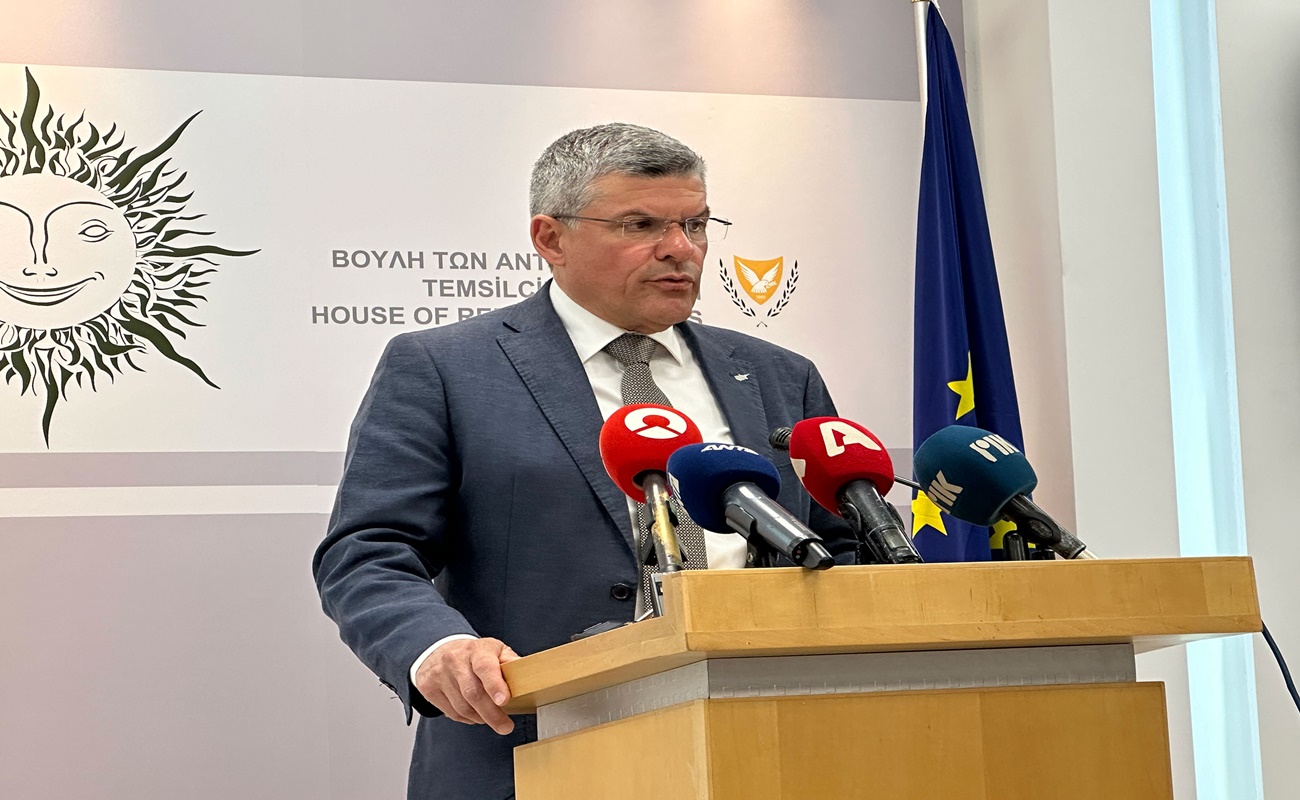
[ad_1]

The Minister of Energy, Trade and Industry, Giorgos Papanastasiou, clarified today that, as things stand, the issue of geopolitical risks in the implementation of the Cyprus-Greece Electricity Interconnector (Sea Interconnector) puts pressure on the implementing agencies and he supports the existing regulatory framework defined by CERA on the matter.
“The risk lies in the new executive body,” Papanastasio said during a special session of the Parliamentary Energy Committee on maritime interconnection issues, particularly geopolitical risks.
Notably, the new implementing agency requires CERA to diversify its regulatory framework and assume geopolitical risks and costs incurred when projects are not completed due to external factors, whereas the existing regulatory framework stipulates that this matter “may” be considered by the regulator.
CERA President Andreas Pullikkas said the issue of geopolitical risk was not a regulatory issue.
“It has to be accepted by the state because it is a non-regulatory issue,” he said. He added that once the state accepts that it is a geopolitical risk, CERA will take that into account when making its decision. He noted that the word “may” is very important because it does not predetermine CERA’s decision.
Mr. Pullikkas informed the Commission of discussions with ADMIE on six changes to the regulatory framework and said CERA accepted four of them. “The remaining two are very important,” he said, adding that the Commission stated in a written response to ADMIE that “CERA’s position is clear that consumers cannot bear any costs without benefits.”
Treasury’s Problem
Asked how the Ministry of Finance is dealing with the issue of risk, Giorgos Pantelis, director general of the Ministry of Finance, said that the Ministry of Finance is not able to look at the issue of risk from both a geopolitical and economic perspective and, more broadly, the impact on the Cypriot economy and electricity market due to the lack of decisions and studies that have not yet been completed, but also due to regulatory decisions that have not yet been finalized. He also pointed out that the Cypriot authorities do not have a financing plan for the project, nor have they provided details of ADMIE’s agreement with Nexans and Siemens, the manufacturers of cables and voltage converters. “All this does not allow for technical due diligence,” he said.
At this point, the Minister of Energy responded that the question raised by Mr. Pantelis would be answered if the Republic of Cyprus decided to join the capital of the project, but this decision has not been made.
Mr Pantelis responded that the Ministry of Finance disagreed with this position as it was not only about whether the Republic would join the project, but also more broadly about the impact on the economy.
Responding to Mr. Hazigiani’s comment that we are moving from one ministry to another, George Papanastasiou said it was not two different approaches but a “healthy dialogue on the right basis.” He noted that in time the two philosophies will merge.
He reiterated that in many ways the project was the right thing to do. “If it hides pitfalls, then it is right to check them so as not to fall into them,” he added.
Speaking after the meeting, Mr Hatzigiannis spoke of the “experiment” the Energy Department was pushing for in the project and agreed with the finance minister’s concerns.
“Half of the government has its own view and the other half pushes the project with nothing to take care of,” he said, welcoming CERA’s decision not to accept the transfer of risk to consumers.
DIKO parliamentary representative Panikos Leonidou said that for 13-14 years, energy issues have been discussed with the state and consumers at a cost, but to no avail.
He said the previous government’s responsibility was “huge” and “in order not to bear joint liability, the current government must make decisions as soon as possible to meet the needs of citizens, especially the citizens.”
Michalis Giakoumi, on behalf of DIPA, noted that the decision on the participation of the republic in the capital project is still open, noting that such a decision should focus not only on energy security but also on the total cost of energy. He added: “We are seriously concerned about the geopolitical risks, financial, construction and technological risks posed by the project.”
Environmentalist MP Stavros Papadouris expressed concern about whether the Republic would be asked to return the funds if ADMIE failed to complete the project due to Turkish interference, while he welcomed CERA’s positive attitude despite “unbearable pressure” not to approve the developer’s request to charge consumers before the project is completed and commissioned.
In addition, AKEL MP Irini Charalambidou, speaking at the meeting, asked whether Turkey would include the issue of non-obstruction of the implementation of the telegram as a negotiating document in the process of resolving the Cyprus issue, noting that the foreign minister should also be summoned on the matter.
EDEK councillor Ilias Myrianthous expressed concern about the possibility of asking for refunds if the project is not completed.
Source: KYPE
[ad_2]
Source link


